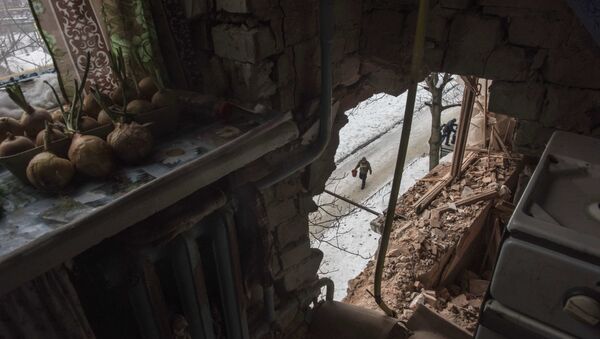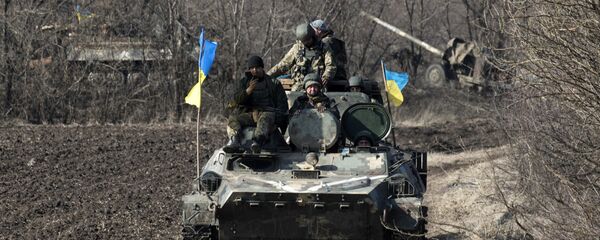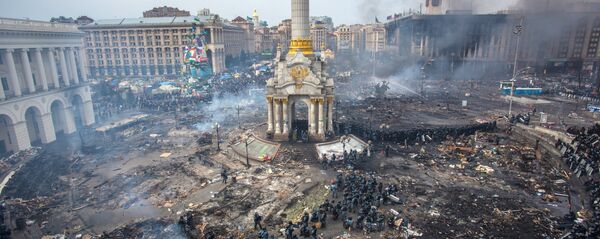The conflict in Ukraine is set to be at the top of the agenda for discussion. While Germany, along with Russia, has stressed commitment to the February 2015 Minsk Protocol for regulating the crisis, Berlin is unwilling to sanction Kiev for its failure to implement the necessary steps.
Instead, the EU continues to sanction Russia for the failure of the ceasefire in eastern Ukraine, despite the fact that Russia is not party to the Minsk agreements, Alexander Rahr, director of the German-Russian Forum, told Sputnik Deutschland.
"There is no criticism for Ukraine, which has failed to fulfil the Minsk agreements and give Donbass the necessary autonomy it was promised. That is why this process is in such a precarious state," Rahr said.
The analyst said that Merkel herself, who along with the Presidents of France, Russia and Ukraine declared her support for the Minsk Protocol, also carries an element of responsibility for Kiev's failure to implement them.
"Whether she likes it or not, as Chancellor she is a guarantor of the success of the peace process in eastern Ukraine, or its failure," Rahr said.
"She started it, it was her idea, she took French President Hollande by the hand and led him to Minsk, where this process was initiated with Ukraine and Russia. If this process collapses, it will be Merkel's fault."
Ahead of Germany's federal elections in September, Merkel doesn't want to suffer a diplomatic failure that could be exploited by opposition parties.
"She is traveling to Russia to see what she can do to continue this process," Rahr said.
"German politicians, perhaps in contrast to politicians in other European countries, state quite clearly that it's not possible to build Europe without Russia or against Russia."
"While Germany thinks and acts in a European way, it has a global foreign policy agenda and German voters want to know about their country's global foreign policy, the way the world order is developing and conflicts across the world," Rahr said.
In February 2015, the Ukrainian government and the authorities in the self-proclaimed Luhansk and Donetsk People's Republics agreed to a series of steps to regulate the conflict in Donbass, which broke out in April 2014 when local residents proclaimed independence from Kiev following the Maidan coup d'etat in February 2014. Kiev responded with a military operation, encountering stiff local resistance.
According to the Minsk Protocol, the Ukrainian army and pro-independence militia in eastern Ukraine are to withdraw their forces from the line of contact in order to create a buffer zone.
However, Kiev has proven unwilling to remove its heavy weaponry from the conflict zone or to implement political reforms. Rather, the Ukrainian government has escalated the situation by backing a transport blockade of the southeastern regions that was instigated by right-wing nationalists and then temporarily cut electricity supplies to the Luhansk region.
On Tuesday, Kremlin spokesman Dmitry Peskov said that Russia continues to provide humanitarian support for the people of Donbass.
"The de-energization of the Lugansk region is another step on the path of Ukraine's rejection of its territories. This is a step that contradicts the spirit of the Minsk agreements, which does not bring us closer to the implementation of these Minsk agreements, but rather distances us from the ultimate goal," Peskov told journalists.





